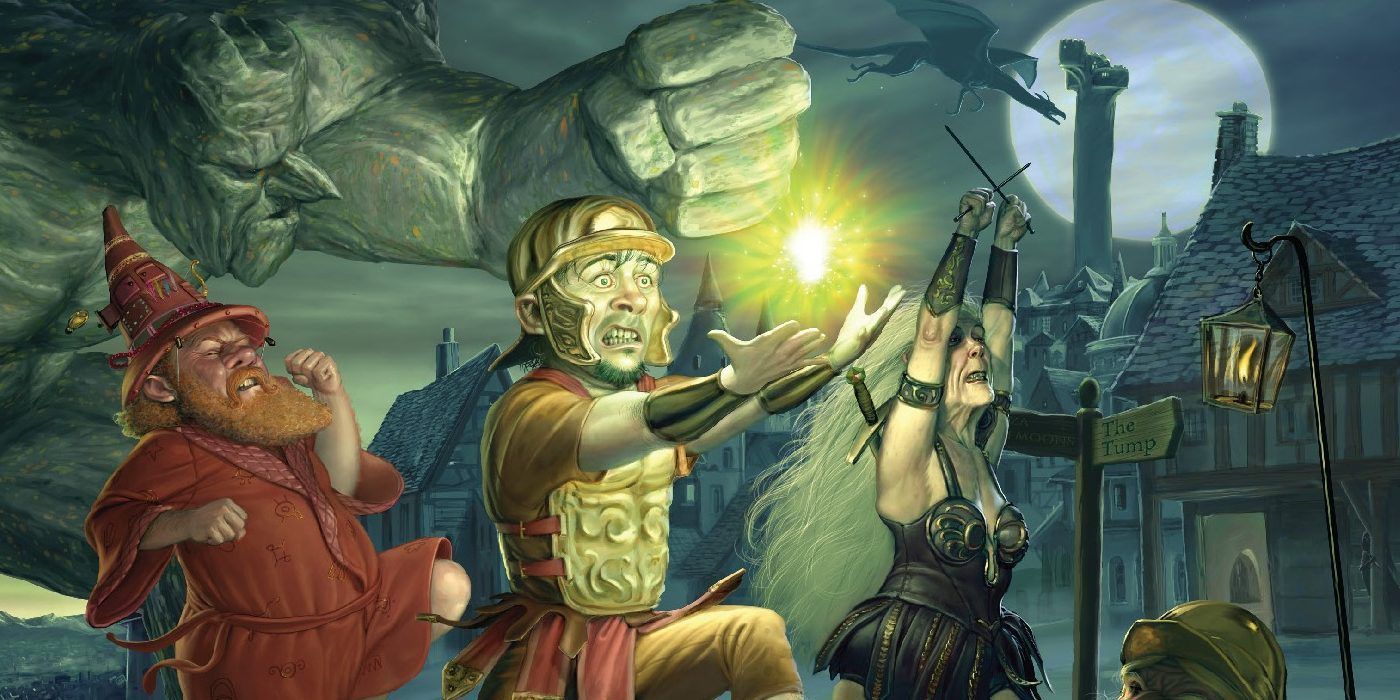When working in sci-fi or fantasy, it can be important to understand how a narrative's fictional rules operate. Some systems follow strict laws while others are a bit more fluid. Even a narrative that intentionally leaves the rules of its world ambiguous has a lot to teach storytellers.
The hard and soft magic system dichotomy was best summarized and popularized by fantasy author Brandon Sanderson. Sanderson's laws of magic were set out to aid writers of fantastical stories in plotting out the rules and uses of their magic systems. The concept has developed over the years and has informed endless twists and spins on the endlessly varied storytelling use of the supernatural.
The terms hard and soft magic come from the description of different disciplines of scientific study. Natural sciences such as biology or chemistry are considered hard due to the supposedly unbreakable rules that they follow. Social sciences are considered soft because they allow room for less grounded concepts of interpretation. Subsequently, science fiction is routinely divided into hard and soft categories, based on how the two central concepts are balanced. A film like Moon or The Martian relies heavily on real science with limited fictional elements to create drama. A story like Gene Roddenberry's Star Trek uses very little real science and would be considered very soft. Much like these distinctions, the difference between hard and soft magic systems comes in how the rules of the narrative are laid out.
Consider the works of J. R. R. Tolkien. The magic system in The Lord of the Rings has a great deal of lore surrounding it, but the actual rules governing how it works are left deliberately open. Gandalf is capable of great things, but what is the process he uses to exercise his powers? Star Wars works in much the same way. Connection to the Force confers superhuman capabilities upon those capable of sensing it, but most of the rules are left to the Masters to understand. The closest the franchise came to defining the scientific basis behind the Force came in the "midi-chlorians" speech in The Phantom Menace, which was so despised that later films ignored it. Soft magic works for these stories because it creates a sense of wonder. Explaining every detail of Gandalf's magic or the Force's influence would only take away from the feeling that anything can happen. This type of writing doesn't work for everything, however.
One of the best examples of a hard magic system is Hiromu Arakawa's Fullmetal Alchemist. This beloved manga and anime series takes the ancient protoscience of alchemy and upgrades it to practical magic. In a steampunk 20th-century world, alchemists use chemical formulas and physical calculations to transmute matter from one form into another. Alchemy operates on the Law of Equivalent Exchange, which is the series' take on the law of conservation of mass. The rules of alchemy are made blisteringly clear to the audience on multiple occasions. A viewer would routinely be lost in the plot without that knowledge. Alchemy is a very hard magic system, not just because it uses elements of real science in its presentation, but because its rules are clear to the audience and key to the narrative. This allows the audience to be fully invested and aware of the capabilities of its characters using the tools they have. Only once the rules have been established, can they be bent and broken to shatter expectations.
Magic is always fictional, but narratives need rules to communicate their events. If a character accomplishes something, but the audience doesn't know what they went through, how difficult it was, or what it meant to them, it has little to no impact. Magic systems occupy an interesting place in narrative fiction, in that leaving them unexplained can often be just as powerful as laying them out. A hard system isn't necessarily better than a soft system, they just serve different purposes. Narratives with soft magic systems are allowed to be more esoteric. Terry Pratchett's beloved Discworld franchise features a magic system that is soft to the point of becoming liquid, and it's beloved for its lack of hard rules.
Soft magic systems offer the freedom to tell stories in a more allegorical or philosophical direction. Hard magic systems are more grounded and limited, but also more defined. The important part of this dichotomy is matching the correct point on the spectrum for a specific work. The system isn't a binary, it's a wide divide with infinite points to settle into. Spending time establishing the rules of a system can be difficult, but it can also be rewarding. Plenty of hard and soft magic systems work in the story that they serve. Choosing the proper magic system is one of the most important parts of writing a fantasy story.
The Link Lonk
July 08, 2022 at 05:00AM
https://gamerant.com/hard-soft-magic-explained/
Hard And Soft Magic Systems Explained - GameRant
https://news.google.com/search?q=hard&hl=en-US&gl=US&ceid=US:en


No comments:
Post a Comment